European Union efforts to tackle marine litter were boosted with the adoption of new rules on single-use plastics by the European Parliament.
On 27 March 2019, legislators in Strasbourg voted on the Single-Use Plastics Directive, agreeing on measures to ban selected single-use products made of plastic, measures to reduce consumption of plastic food containers and beverage cups, and on extended producer responsibility schemes – schemes which will cover the cost of cleaning up litter (from products such as tobacco filters and fishing gear).
The new rules are intended to address marine litter and plastic pollution, but also go some way to cementing the EU’s position as a world leader in sustainable plastic policy.
Jyrki Katainen, European Commission vice-president for jobs, growth, investment and competitiveness said the new rules would not only prevent plastic pollution but provide opportunities for industry:
“The European Parliament has played an essential role (…) in giving a chance to the industry to innovate, thus driving forward our circular economy.”
This view was echoed by the legislation’s parliamentary rapporteur, Frédérique Ries of the ALDE group:
“The European Union is creating niches for innovation. We are creating opportunities for jobs. This (legislation) is an opportunity for innovation, creation, research and development – and for niches that will exist in all these alternatives (to single-use plastics).”
The directive voted on by the European Parliament also contains other measures related to the collection of plastic bottles.
The EU now has a 90% separate collection target for plastic bottles by 2029 (77% by 2025), and the introduction of design requirements to connect caps to bottles. Parliament also approved a target to incorporate 25% of recycled plastic in PET bottles from 2025 (and 30% from 2030).
Following this approval by the European Parliament, the Council of Ministers will finalise the formal adoption. Typically, this then means that the endorsement is followed by publication of the texts in the Official Journal of the European Union, and European members states will then have two years to transpose the legislation into their national laws.
The rules on single-use plastics are part of the EU Plastics Strategy, which aims to have all plastic packaging placed on the EU market as reusable or recyclable by 2030.
